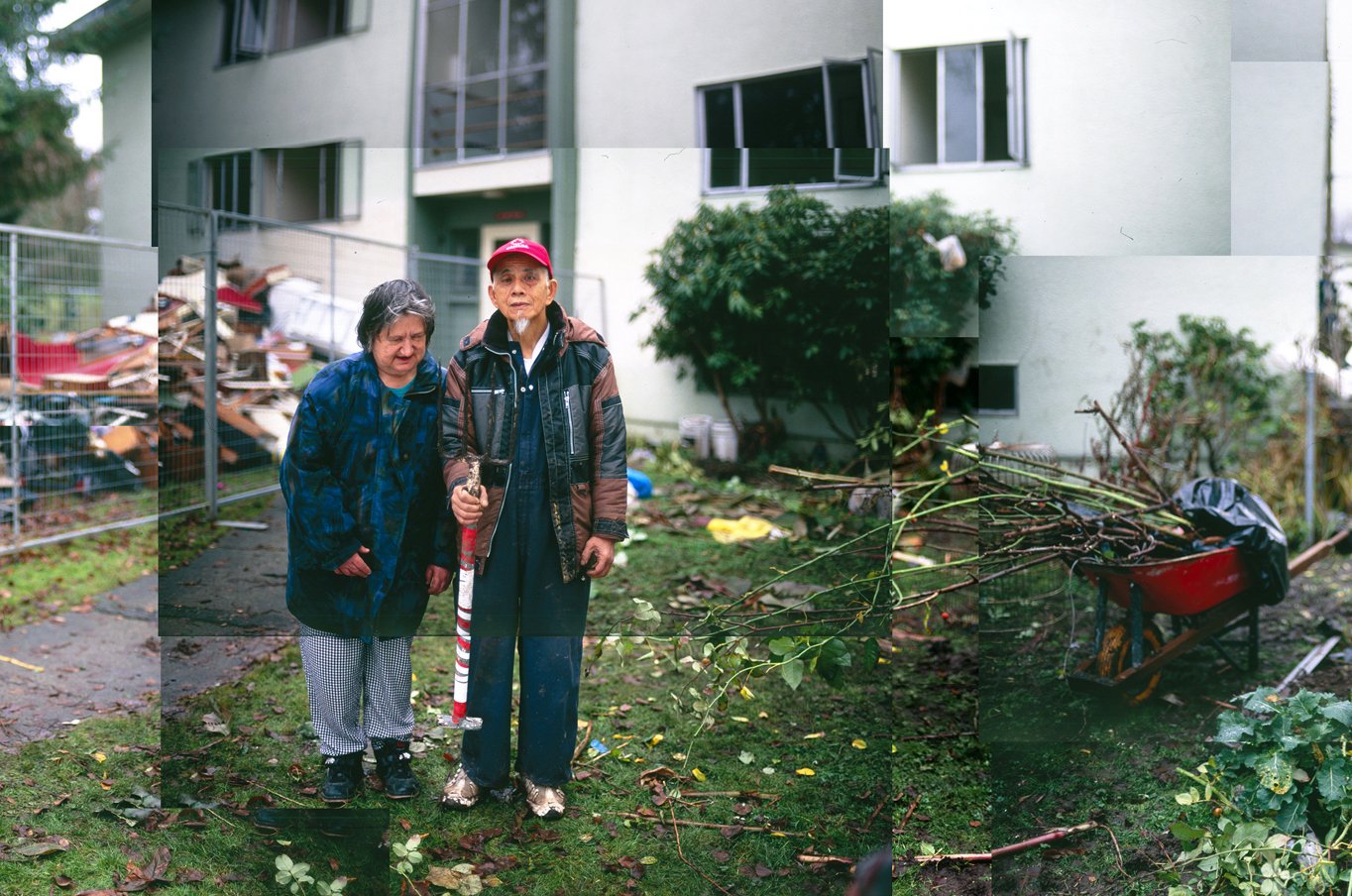When Ingrid Steenhuisen’s former neighbours were low on food and strapped for cash, the Little Mountain social housing resident would spend what little she had on a bag of flour and deliver it to their home.
Last week, Steenhuisen and other Little Mountain housing activists marked 10 years since the province announced it had sold the complex to a private developer, who quickly made plans to demolish it. While critics continue to cite its demolition as the failed testing ground for B.C.’s approach to social housing, Steenhuisen remembers the vibrant social housing community where people looked out for each other.
“There were a few times where the local grocery store in their sale flyer would have a 25-pound bag of flour for six or seven dollars,” Steenhuisen says. “So my Mom and I would split that cost and then I’d take the bag of flour to that family because I knew the mother baked and that way she could do bread….she’d have a way to tide it over.”
“People took care of one another’s kids. That kind of thing existed when I was young, it existed until 2009.”
There goes the neighbourhood
Steenhuisen grew up in the Little Mountain housing project, which was originally constructed as low-rent housing for middle-income families after the Second World War. A longtime housing advocate, the 60-year old says that everywhere she goes in her neighbourhood of Little Mountain, people know her. But with the removal of the 224-unit social housing project at East 37th Ave. and Main Street, Steenhuisen had to say goodbye to neighbours she’d known her whole life.
With a handful of others, Steenhuisen resisted eviction for several years. Today she lives in the 54-unit seniors social housing building that sits on the otherwise empty green lot. It’s the only thing that has been built since the original row houses were levelled.
Steenhuisen recalls the community had experienced its fair share of rumours that the complex would be broken up and sold off since the 1990s. But it wasn’t until March 2007 — 10 years ago — that rumour became reality. The B.C. Housing authority announced it had sold the site to a developer, effective April 1, 2007. Many tenants started packing up, with the idea that it was temporary.
According to David Chudnovsky, a Little Mountain housing advocate and former MLA for Vancouver-Kensington, when B.C. Housing started pushing residents out in 2007, they were told they’d be moved back in before the 2010 Olympics. But it never happened.
It wasn’t until July 2016 that the city and developer, Holborn Holdings Ltd., agreed on zoning changes that would allow the company to build market-priced condos alongside the social housing it had promised to replace. At this point, the company announced it would still be 10 years before the project was complete.
But according to B.C. NDP housing critic, David Eby, the delay could have been avoided.
“When the property was purchased by the developer everybody knew what the zoning was… everybody knew the maximum number of units that could be built on the site,” said Eby. But the city initially said no to the developer’s rezoning application.
“There has definitely been a stand-off between the city and the developer because [given the zoning] the developer overpaid for the site. The problem is that the province entirely failed to put deadlines in the contract with the developer when they sold the land, to require that the affordable housing be rebuilt, regardless, by a certain deadline.”
Eby, the MLA for Vancouver-Point Grey, says the loss of the low-income housing project is an example of the failure of the government’s strategy to privatize social housing.
“I think the evidence for the failure of this government’s approach is really evident in the Little Mountain site as a micro example,” he said. In fact, the project was essentially a “test” site for the B.C. Liberals’ “broader approach to public housing.”
The approach, said Eby, has seen $200 million worth of public housing sold to private developers, and the management transferred to non-profits. At the Little Mountain site, the province expected that the private developer would rebuild the social housing, using the profit from the market-priced condos it would build next to them. Or, as the B.C. Housing website puts it, the “partnership with the private and non-profit sectors,” envisions a “new, safe, accessible housing, with a mix of subsidized and market housing, along with community facilities and other neighbourhood amenities.”
With B.C.’s election less than three weeks away, the NDP have promised to build 114,000 new co-op, social, rental and owner-purchased homes in the next 10 years as part of their housing strategy, which also includes a $400 annual subsidy for renters.
While construction is now set to start this year, much of the 15-acre lot has sat unused for the last decade. Housing advocates say the redevelopment process for Little Mountain has failed the residents because it broke up a vibrant community.
“You start with a community that actually works, where people know each other and have some relationship to one another, and then you scatter those people to the four winds,” said Chudnovsky.
Tessa Vikander is a Vancouver-based freelance multimedia journalist writing about social movements, Indigenous leadership, education and lifestyle. She is smart and funny on Twitter @TessaVikander.
Image: David Vaisbord
Please chip in to keep stories like these coming.



